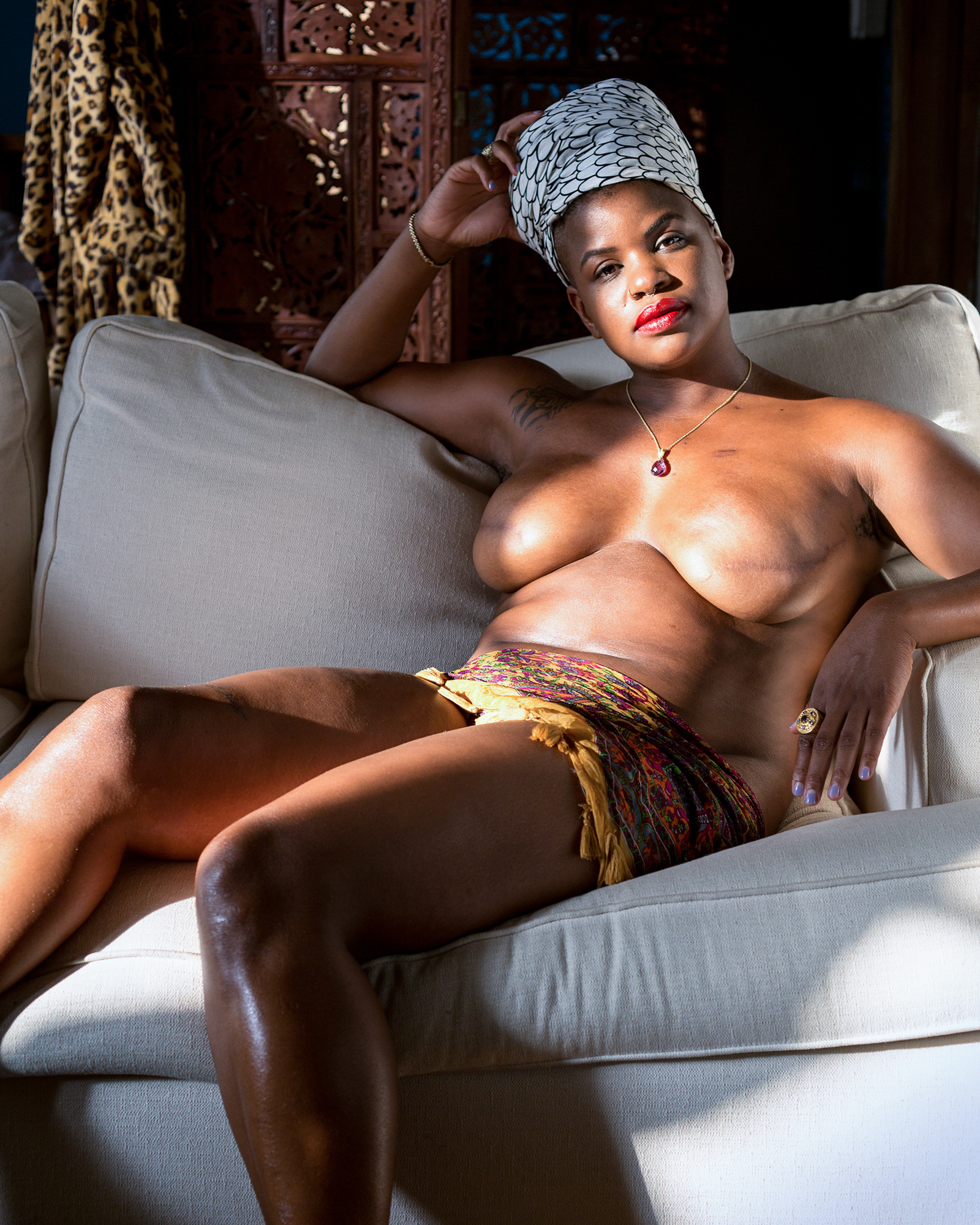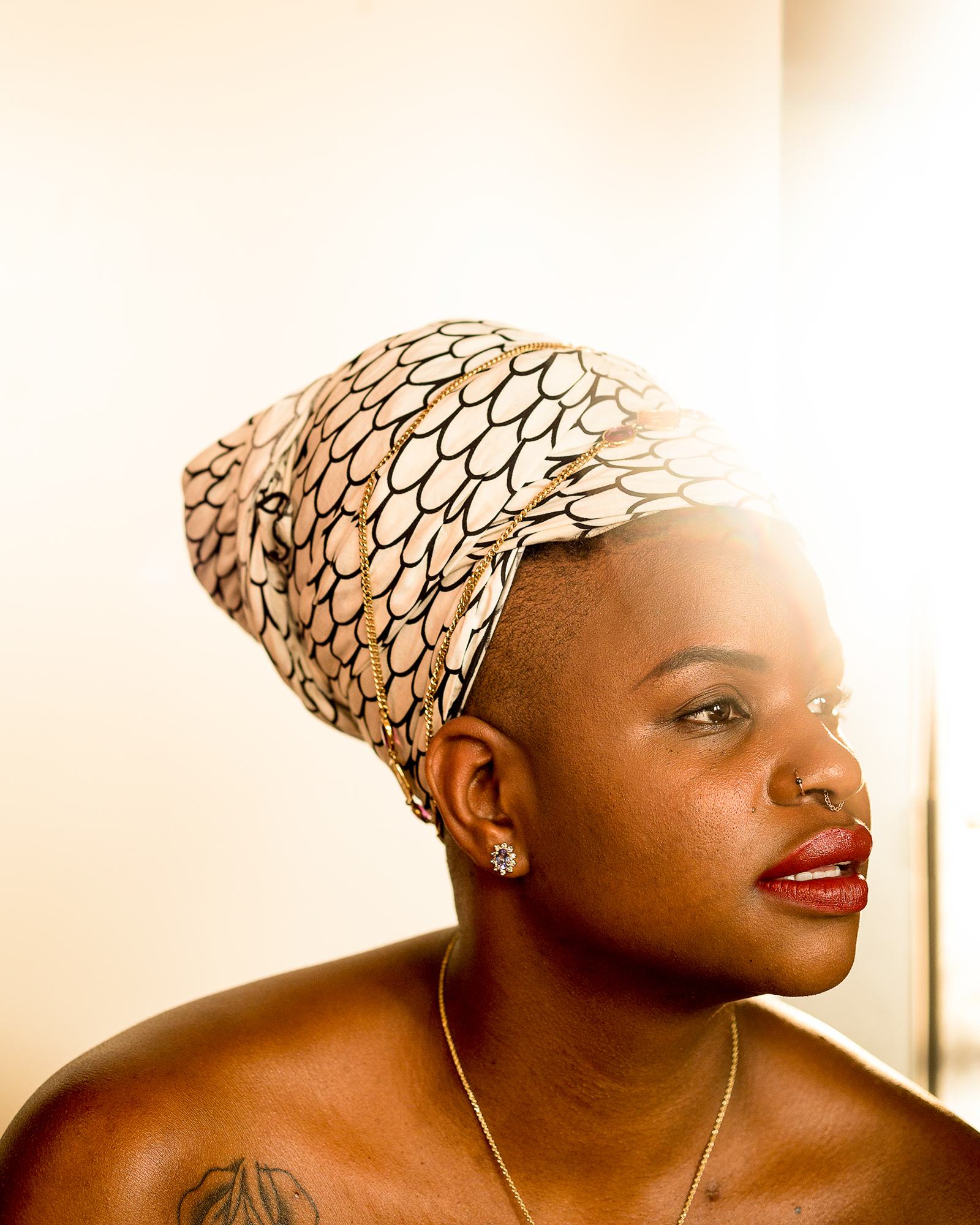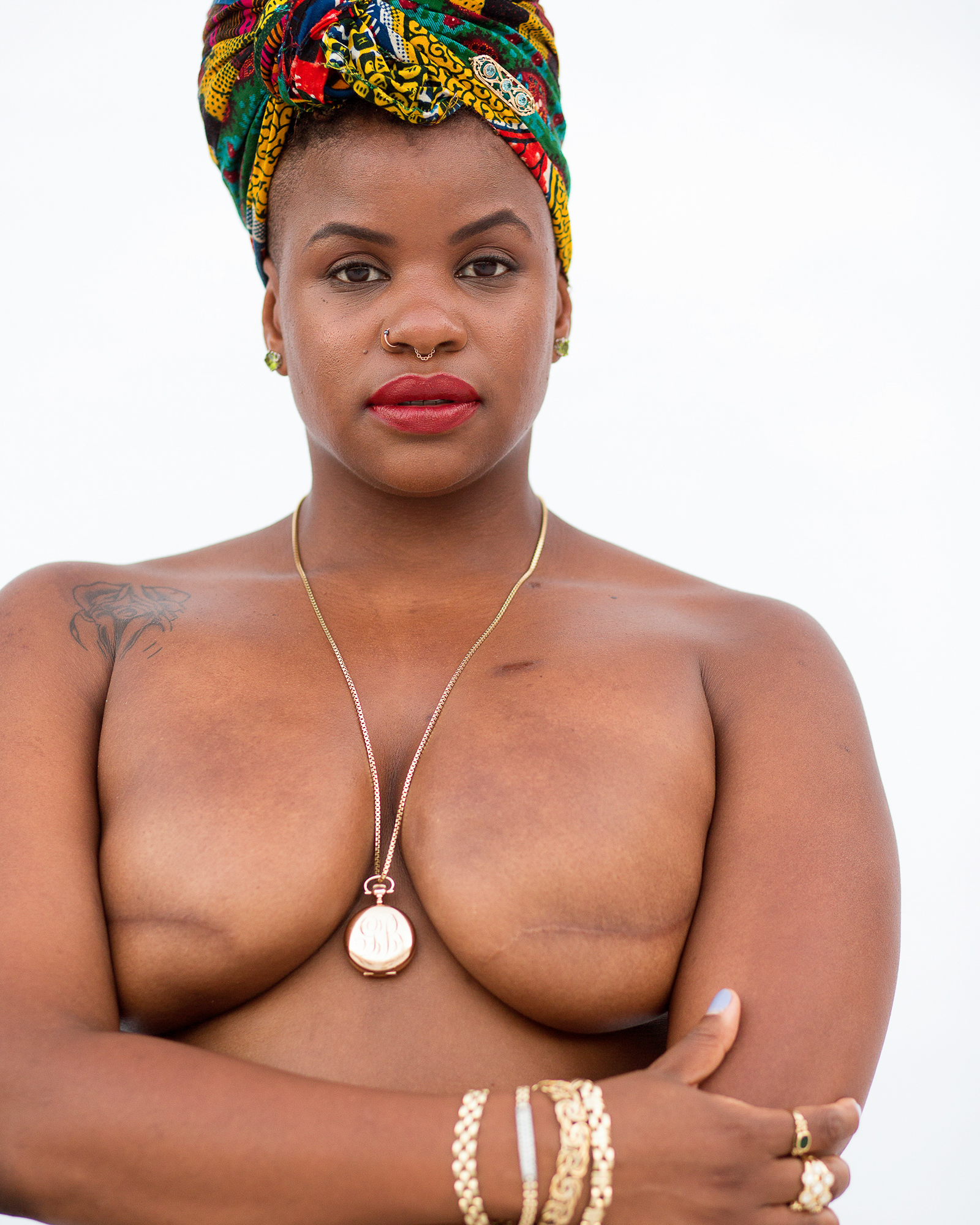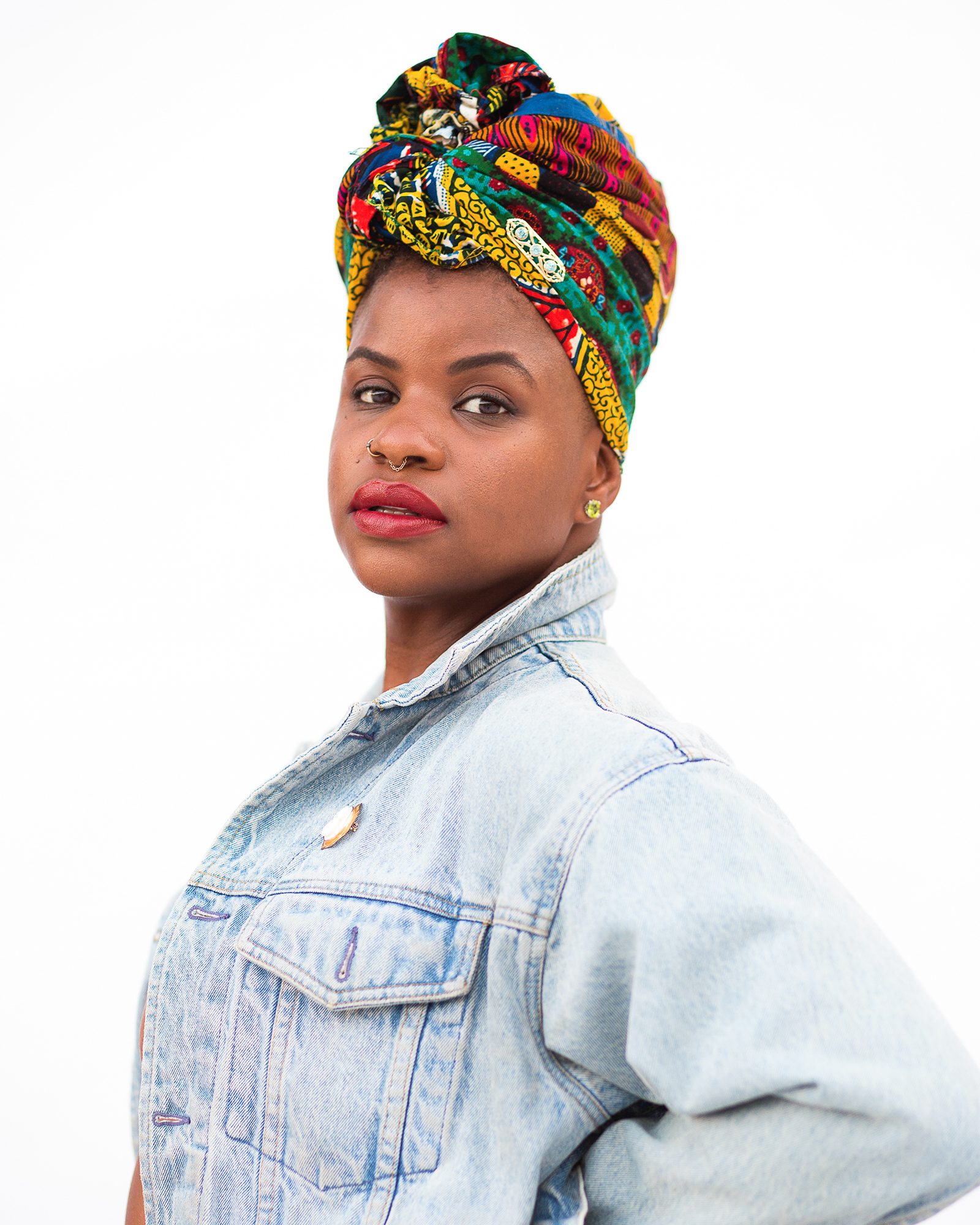Two years ago, Ericka Hart, a 30 year-old sexuality educator was diagnosed with breast cancer. To raise awareness and provide visibility for Black queer women who are battling with or have battled breast cancer, Ericka attended this year’s Afropunk Fest in Brooklyn topless revealing her double mastectomy scars. The courageous move caught the attention of the festival’s attendees and photographers. It wasn’t long before her photo and story went viral.
Photography by Eric LaCour | Art Direction by Asher Torres | Makeup by Katie Robinson

“Punk to me means standing in your truth and resisting white supremacist, patriarchal notions of existence.”
Ericka noted in her Afropunk blog, “Punk to me means standing in your truth and resisting white supremacist, patriarchal notions of existence. I wanted people to see me such that they saw themselves, their mothers, lovers and friends.” Unfortunately, this wasn’t the first time Ericka came face to face with the disease. Breast cancer claimed the life of her mother when Ericka was just 13 years-old.
A recent study found “The black-white disparity in breast cancer death rates has increased over time; by 2012, death rates were 42% higher in black women than white women.” The trend is expected to continue. That same study found that “Black women are more likely than other racial/ethnic groups to be diagnosed at later stages.” Despite these dire facts, the face of breast cancer survivors tend to be white. As a black, queer survivor, Ericka was determined to show the world that “We exist.”
Ericka Hart is not only a breast cancer survivor, she is a breast cancer warrior. The decision to share her scars and her story are a true testament of her #BlackGirlMagic. We caught up with Ericka to discuss her decision to attend Afropunk topless and the importance of visibility, sexuality, and self care.

How and when did you first learn of your Cancer diagnosis?
I found a lump doing a self exam in the shower April 2014. At the time, I did not have health insurance, so although I knew this lump that I had discovered needed to be checked, I didn’t know where to go. I think I was in shock in my not knowing as I had a friend who is a breast cancer surgeon. My wife at the time reminded me of this and I went to see him. He was luckily working at a hospital that served all people regardless if they had insurance or not.
After a week of a series of test, I was standing in Wall Street about to do what most femmes would do on a lunch break – go to Sephora – but I was jolted by a phone call from my doctor. My heart skipped a beat and I answered the call standing right in front of the Sephora door. The beginning of this conversation I do not remember, but I do remember hearing him say, “Ericka, you have breast cancer.” I asked him if I was going to die to which he replied, no. Which I now find so funny, as everyone will!
The great thing about NYC is that you can be crying in complete shambles in public and no one will look at you. You have have complete privacy in public. That’s what I had. I sat on a bench in Wall Street after my conversation with Bert and cried. I mustered up some strength to call my wife at the time and she arrived in Manhattan faster than I had ever seen from Brooklyn.
I called my Dad and he tried to comfort me with hopes for new breasts. I chuckled a little but it was all nervous I’m-scared-out-of-mind laughter.
“I wanted people to see a breast cancer survivor as not only a warrior, but as sexy (AF)!”

Dealing with the reality of Cancer is a very personal and emotional experience. But Afropunk is and has been a festival and a safe space to not only challenge societal norms, racism, homophobia and sexism, but to also celebrate the beauty of black culture and fierceness. Is that why you chose that venue to start this very important but difficult conversation?
Yes, and it’s a safe space for black freedom and expression. I wanted to do more than push up against -isms. I wanted people to question their ingrained thoughts of body image. I wanted people to see a breast cancer survivor as not only a warrior, but as sexy (AF)!
You’ve previously stated in your Afropunk blog post that when you researched images of double mastectomies, there weren’t many images of black women. Why is it so crucial that people of color see themselves represented as cancer survivors?
People of color, and in particular, black cis and trans women, die at higher rates due to historical trauma with going to the doctor and institutionalized racism that exists once they arrive. So black people seeing me, my youthfulness, and my scars – I hoped to urged them to check their breasts and to not think it doesn’t happen to us. Google images is missing images of black mastectomy scars and patients, but we exist.
Do you think the way society defines beauty and female sexuality contributes to the lack of visibility of people of color?
Absolutely! I could go on and on about this, but totes. The face of breast cancer is the dominant face of everything else: white, hetero, and cis.

How do we shift the conversation to include people of color and the queer community in breast cancer awareness?
Include us in campaigns. Have our stories told. Don’t create a tiny section on a website that discusses Queer identities, make the entire website inclusive and accessible!
What advice would you give to women — particularly women of color, who are, or will be going through the same thing that you went through?
It is ok if you never want to wear pink, show your chest/breast scars, raise your fist in the air, do a breast cancer walk, etc. You are a walking resistance to the tiny morbid conversation that most have of breast cancer. You got this. Rest. Don’t settle for poor care. Ask for what you need even if you think it might not exist.
Follow Ericka on Instagram at @ihartericka
